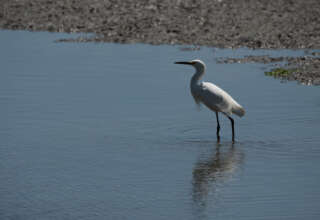
This leaves us at the start of this set of essays. They summarize what I know (and what researcher tell us) about sleep and provide guidance toward getting a good night of sleep. The first of these essays introduces the topic of sleep and provides important general information about the nature of sleep. The next four essays provide information about the pathways associated with the four components of high-quality sleep. I invite you to start reading about this fundamental domain of human health. I hope you will find this essay and the ones that follow to be helpful in your own quest for high-quality sleep.
The What and Why of Sleep
Human beings need sleep. This is fact of which we are all aware. Not all animals need sleep—a surprising fact and a fact that challenges us and forces us to ask a basic question: Why do we have to sleep? Why does evolution give up vigilance and consciousness in favor of a state of unconsciousness and the loss of vigilance when we are asleep? We are vulnerable to attack from other entities, including other people when we area sleep. Why risk the absence of consciousness and vigilance for the sake of sleep? This doesn’t seem to be very adaptive. If some other species don’t need to sleep, then why are humans saddled with the challenges of falling asleep and somehow surviving when asleep?
I will try to provide some preliminary answers, though research on the benefits of sleep for humans is still underway and we are likely to know more in another ten years than we do now. Before focusing on these benefits, I would like to set the stage by describing something about the unique way in which our brain lets us know that sleep offers such important benefits. Our brain, in fact, is willing to short-circuit all other functions of our body to demand that we fall asleep.
The Brain’s Demands
Only the brain needs sleep. Other parts of our body are not in need of anything quite similar. It is interesting that we use the same word, “tired”, when describing the conditions leading to both sleep and cessation of physical activity. We spend an hour working in the garden or completing a run of 5 miles – and we are “tired”. Our body suggests that we take a little time off from physical labor and rest a bit. However, it is only a suggestion being made by our body. We can ignore the suggestion and continue to garden or run another five miles. Sometimes (at least in the logo of sports psychology) we “will” our body into doing a bit more work – and we ignore (at least temporarily) the signals emanating from our body regarding the value of reduced physical activity.







